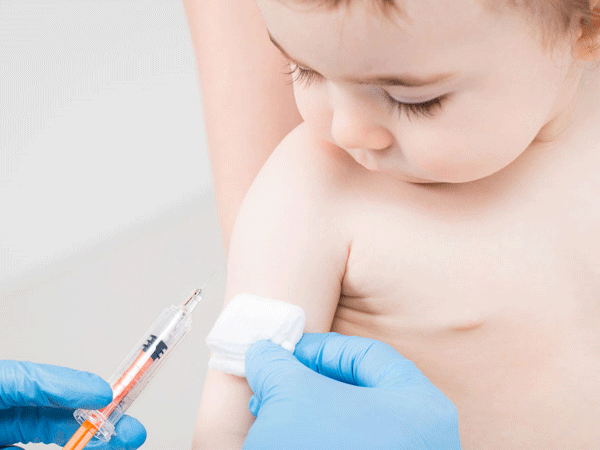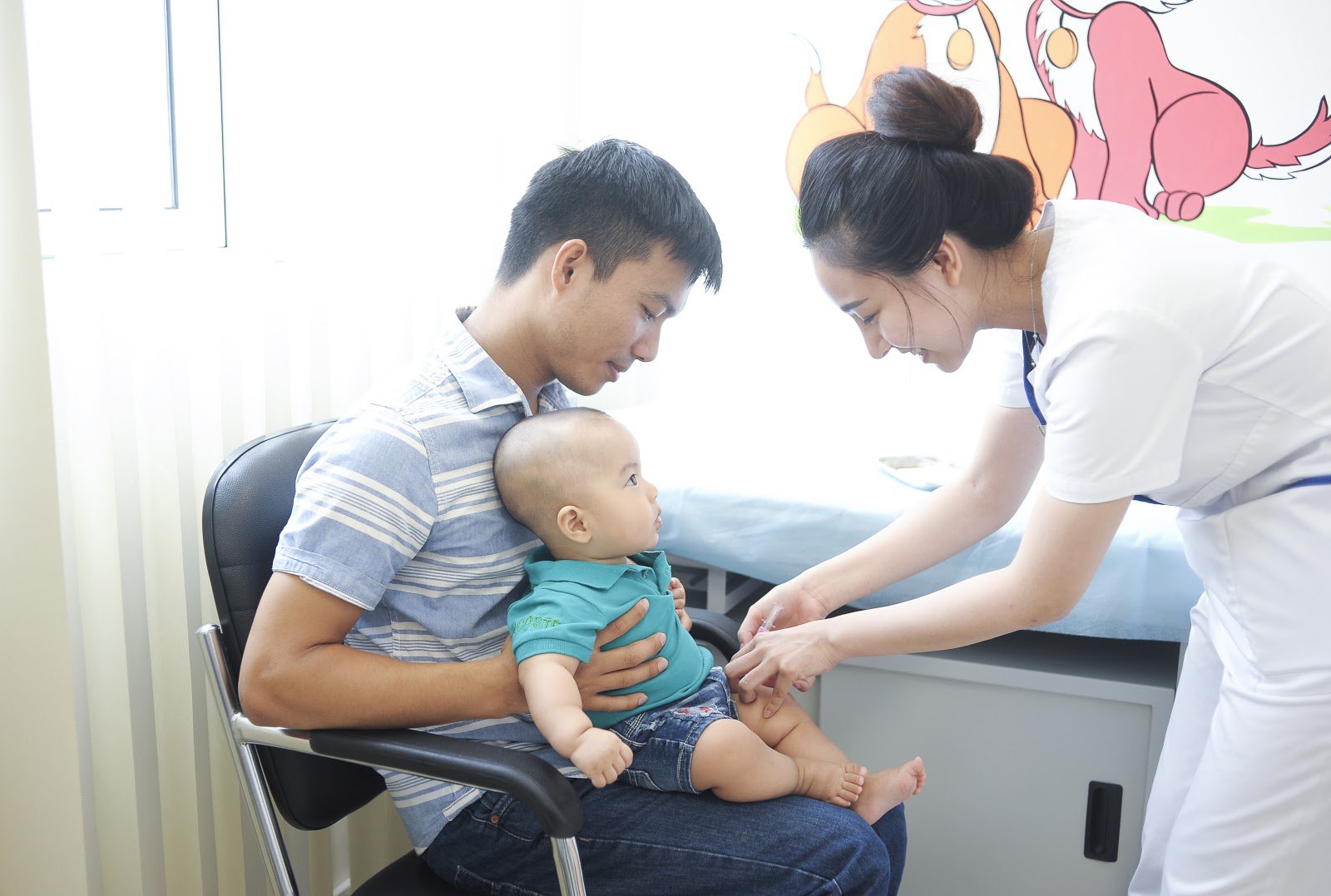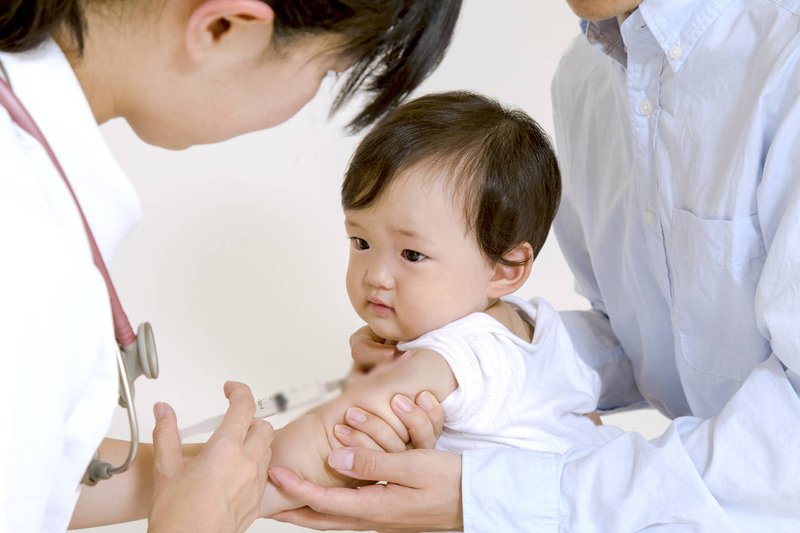After years of expanded Japanese encephalitis vaccination, the number of cases has decreased rapidly but the risk remains with young children. Parents should get their children vaccinated against Japanese encephalitis at the right time and ensure the full number of shots according to the recommended vaccination schedule of the Ministry of Health.
1. Severe migrating caused by Japanese encephalitis
Summer is the peak of encephalitis outbreaks, including Japanese encephalitis (common in children under 15 years of age). Japanese encephalitis has a high mortality rate (25-35%) and will often leave a testament to the pediatric patient. This is also the concern of mothers with young children this summer.
Death from Japanese encephalitis usually occurs in the first 7 days, when the patient begins to show signs of deep coma, convulsions and symptoms of damage to the brain. Even if the patient survives, it will leave severe symptoms, most commonly mental disorders, movement disorders, impaired communication.
Early complications may appear after the patient has Japanese encephalitis, including: bronchitis and pneumonia. Or, during treatment there may be inflammation of the renal tank, bladder due to urination or cathetro draining. In addition, patients may experience ulcers, vein obstruction and nutritional disorders due to long lying down. The likely early symptoms are: Polio or het half-human paralysis, language disorders, seizures, impaired motor coordination, severe memory loss, psychotic disorders. The late symptoms that patients may experience are arrhythmity, poor hearing or deafness, neurological disorders …
2. Japanese encephalitis vaccination as recommended

Currently there is no specific treatment for Japanese encephalitis. However, you can actively prevent the disease of the child by vaccination. Before Vietnam implemented the Japanese encephalitis vaccination in the National Expanded Immunization Program, up to 25-30% of encephalitis hospitalizations were caused by Japanese encephalitis virus infections, many of which died. After many years of vaccination implementation, the rate has now decreased to less than 10%, with the proportion of children of sufficient age being vaccinated always maintained at a high level. However, it should be emphasized that the risk of getting the disease can be increased again if the child is not fully vaccinated.
3. When is Japanese encephalitis 1 injection?
All subjects of all ages can get Japanese encephalitis, but mostly children under 15 years of age. In particular, the most at-risk group is children aged 2-6 years (accounting for about 75% of all cases). It is worth mentioning that up to 80% of cases of the disease are caused by non-compliance with the Japanese encephalitis vaccination schedule as recommended by the Ministry of Health.
Accordingly, children at the age of 12 months are recommended to start vaccinating against Japanese encephalitis. Under the Expanded Immunization Program, children between the ages of 1 and 5 will receive free japanese encephalitis vaccination at local commune health stations.
4. How many shots is Japanese encephalitis injected?

Japanese encephalitis vaccination is full of noses and scheduled is the most effective preventive measure. Japanese encephalitis injects 3 basic vaccines:
- When the child is 12 months old: Start vaccinating Japanese encephalitis nose 1
- 1 – 2 weeks later: Child is given 2 injections
- 1 year later: Child received 3rd injection
Then, once every 3-4 years, it is necessary to repeat the injection once until the child is 15 years old.
In terms of validity, if only the Japanese encephalitis 1 vaccine has no protective effect. If 2 injections are given, the protective effect can reach over 80%. When the injection is full 3 shots, the effect reaches 90-95% in about 3 years. Therefore the child needs to be repeatedly injected every 3-4 years.
The child needs to be given 3 basic injections, then repeated injections every 3 years
As recommended by the Ministry of Health and experts, parents should not be too worried or refer to inaccurate sources of information about vaccines but ignore the most optimal means of child protection today. Japanese encephalitis vaccination is an effective and necessary way to prevent the disease, especially at the peak of the epidemic season.
Share99 International Health Hub has now imported the Japanese encephalitis vaccine IMOJEV produced by Sanofi Pasteur Group (France), issued by the Drug Administration – Ministry of Health on July 5, 2018. When choosing to vaccinate children at Share99, customers are completely assured by:
- Children will be examined by pediatricians – vaccines, fully screened for health and physical problems, advice on vaccines and vaccination regimens, how to monitor and care for children after vaccination before prescribing vaccinations according to the latest recommendations of the Ministry of Health / World Health Organization to ensure the best effect and safest for the child.
- A team of experienced, professional pediatric doctors and nurses, understand the child's psychology and apply effective pain relief to the child during vaccination.
- 100% of vaccinated children are monitored 30 minutes after vaccination and re-evaluated before leaving.
- Be monitored before, during and after vaccination at Share99 Health System and always have emergency ekip ready to coordinate with the vaccination department to handle cases of anaphylalacticshock, respiratory failure – stop cyclic, ensure timely treatment, the right regimen when something happens.
- The vaccination room is airy, has a play area, helps children feel comfortable like walking around and have a good mentality before and after vaccination.
- Vaccines are imported and stored in modern cold storage systems, with COLD chains meeting GSP standards, keeping the vaccine in the best condition to ensure quality.
- Parents will receive a reminder message before the date of vaccination and the child's vaccination information will be synchronized with the national immunization information system.
Share99 International Health Hub is offering a package vaccination program with a variety of vaccines for a variety of subjects, from infants, young children, adults, women before and during pregnancy.
Particularly in December 2019, Share99 is free of charge for newborn Hepatitis B vaccination (immediately after birth) for babies when registering for the Package for children from 0-1 year old or from 0-2 years old.
For direct advice, please click hotline number or register online HERE. In addition, you can register for remote consultation HERE
- Japanese encephalitis vaccine injected in arms or legs?
- Is pregnancy vaccinated against Japanese encephalitis?
- Children with Japanese encephalitis are more likely to die in the first 7 days of illness

